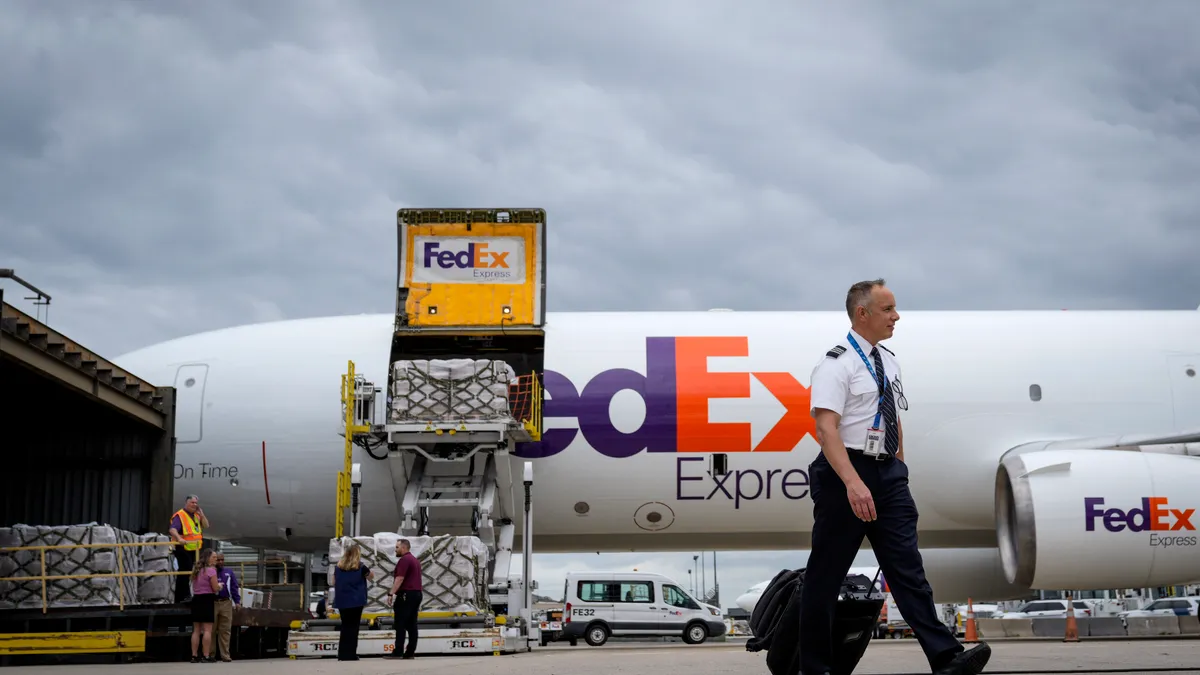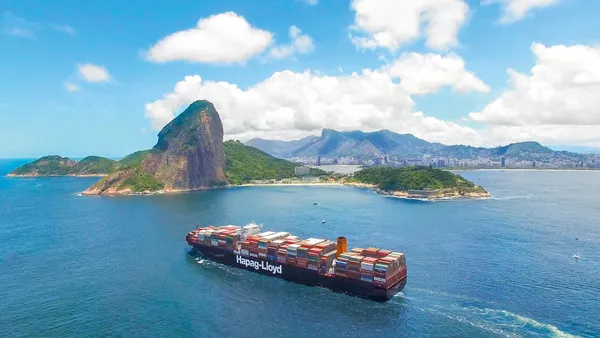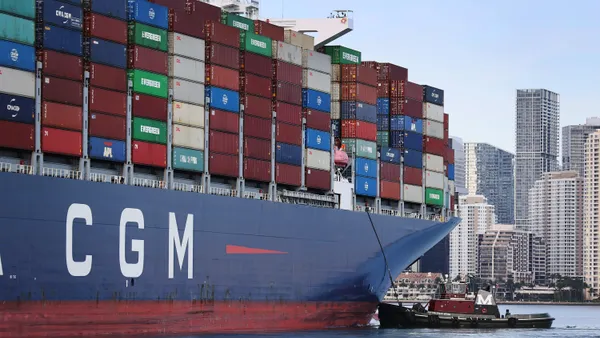Dive Brief:
- A recent growth of political and economic risk worldwide has executives concerned they may have to make costly shifts to their supply chains, according to a recent report by the Economist Intelligence Unit. The fears are not unfounded.
- Companies believe the shifts will increase the importance of technological innovation, particularly regarding visibility, and heighten the role of accounting within supply chain leadership.
- Nearly half of the executives surveyed (49%) believed supply chains would become shorter and simpler, rather than more longer and more complex (33%). A shorter, more visible supply chain would make it easier to mitigate disruptions.
Dive Insight:
"Risk is inevitable. Resilience is everything," runs a headline in Forbes this week. That statement could not be more true as supply chain management enters an era of geopolitical uncertainty and rapid technological shifts.
The past year and a half has shaken the world, with a populist wave threatening a neo-liberal, free-trade oriented standard, and regional politics entering into the foreground. The stunning electoral victories of Brexit and President Donald Trump are a few examples, but who would have thought labor strikes would dominate Spain's ports and Qatar would be suffering an embargo from a coalition of Middle East states?
Politics aside, there is nothing a supply chain manager can do about these events. Risk is everywhere, it is real-time, but often, it is manageable. The ability to suffer disruption, and bounce back, perhaps stronger, is resilience.
The Economist Intelligence Unit report reveals a few way global companies expect to build resilience. For one, end-to-end supply chain visibility emerges as a powerful tool to anticipate and quell disruptions when and where they are most likely to occur. Technology is indispensable to this task.
Second, internally, is greater communication among previously-siloed departments. Supply chain managers must have conversations with accountants about potential changes to import taxes or tariffs, for example. Lastly, is the need for greater agency over the supply chain, ergo the forecast that value chains will become "shorter and simpler."
But at the end of the day, something will always happen to challenge existing resilience mechanisms. The supply chain manager must then ensure they always have a toolkit, to address the unexpected.













